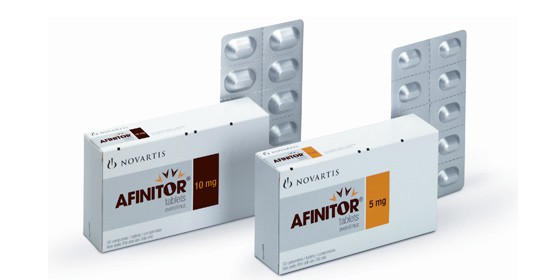
Novartis has failed in a bid to extend the uses of its cancer drug Afinitor into HER2-positive breast cancer, which could have provided a significant boost to sales.
Afinitor (everolimus) is already approved to treat HER2-negative breast cancer and other indications – including kidney and latterly pancreatic cancer – but a phase III trial reported at the San Antonio Breast Cancer Symposium has all but dashed hopes for the new indication.
The BOLERO-1 trial looked at the benefits of adding Afinitor to standard treatment with anti-HER2 antibody Roche’s Herceptin (trastuzumab) and paclitaxel as a first-line treatment, but Novartis’ drug was unable to show any additional benefit on progression-free survival (PFS).
On secondary measures of efficacy – including PFS in a subset of patients with both HER2-positive and hormone receptor-positive tumours – there was trend towards an improvement with Afinitor but this did not reach statistical significance.
Afinitor conferred a seven-month improvement in PFS, and while this may warrant further study emerging data for other treatment regimens – such as the combination of Herceptin with Roche’s Perjeta (pertuzumab) – it may reduce the incentive for additional investment in this area.
Afinitor was the first mTOR inhibitor to reach the market and has already become a big seller for Novartis, growing at a rate of more than 20% in the first nine months of the year to reach $1.15bn.
Some analysts had predicted peak sales upwards of $3.5bn for the drug across multiple cancer indications, but failure in HER2-positive breast cancer – which accounts for around 20% of all breast cancer cases – will make that harder to achieve.
In fact, Novartis has already been downplaying the potential for Afinitor amid a growing recognition that even in its largest breast cancer indication hopes of extending its use beyond advanced-stage patients have receded.
The BOLERO-2 trial looking at a combination of Novartis’ Afinitor and Pfizer’s Aromasin (exemestane) failed to reach statistical significance, for example, and the drug has also failed to show activity in some other tumour types, including liver cancer.
“It’s a good solid franchise even though it may turn out to be a little bit less than we had once hoped,” commented Novartis’ pharma head David Epstein a few weeks ago, when the company was reporting third-quarter financial results.




